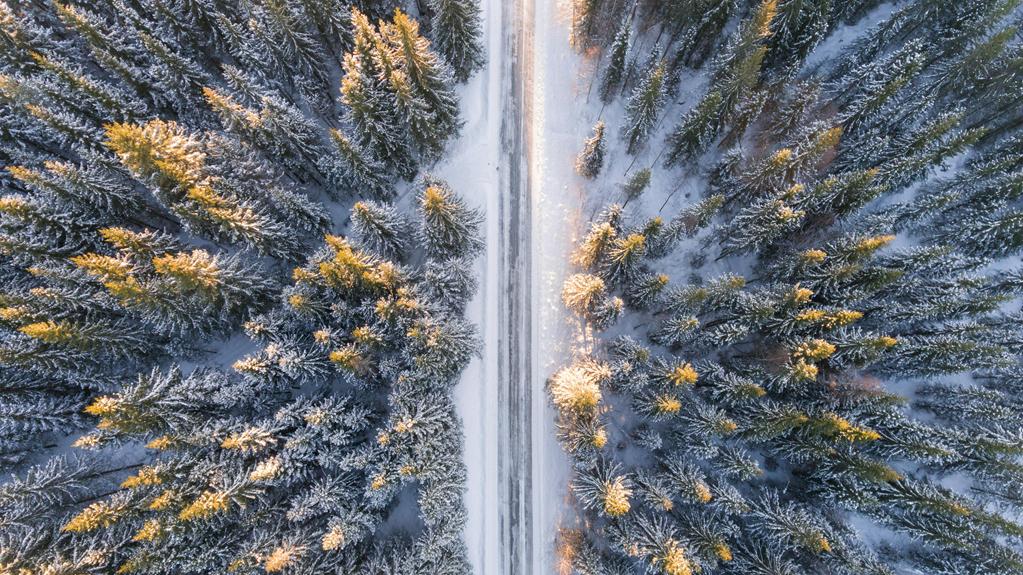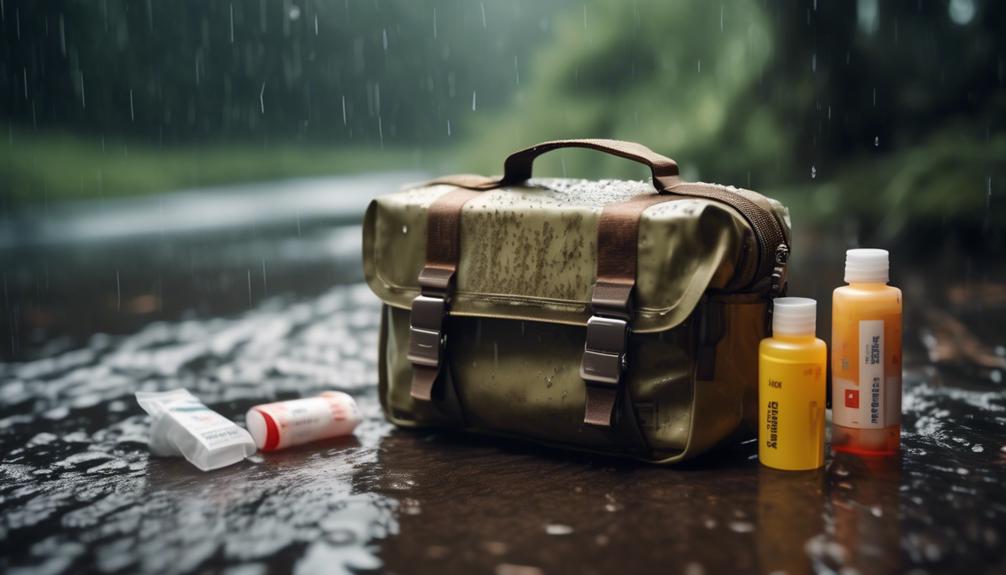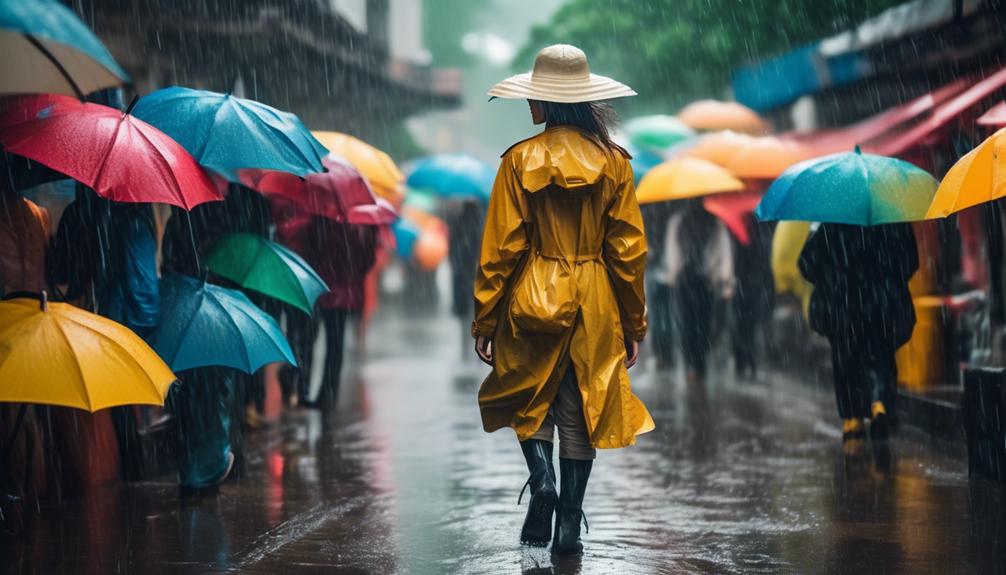8 Essential Health Tips for Monsoon Season Travel

As the monsoon season rolls in, bringing with it a symphony of pitter-patter on our rooftops and a refreshing escape from the scorching summer heat, it's time to talk travel. Yes, you heard it right! While the idea of traveling during the monsoon might have some of you picturing yourselves drenched from head to toe, battling rogue umbrellas, and navigating through puddles the size of small lakes, let's not forget the magical side of it all.
Picture this: lush green landscapes, the earthy scent of rain-soaked soil, and the perfect backdrop for your Instagram stories. But hold on, before you start packing those raincoats and waterproof bags, let's dive into some vital health tips to keep you singing in the rain rather than catching a cold in it.
Stay Hydrated – Yes, even when it's pouring! It might sound like I'm asking you to bring sand to the beach, but trust me, keeping your hydration game strong is key.
And let's talk about those sneaky waterborne diseases. They're like uninvited party crashers, but with these tips, you'll be ready to show them the door.
So, are you ready to make your monsoon travel as legendary as the summer of '69 (or at least close to it)? Pack your spirit of adventure (and maybe an extra pair of socks), and let's embark on this journey filled with practical advice, whimsical charm, and yes, the occasional splash.
What's your monsoon travel mantra? Do you have a rain dance or a secret potion to keep those travel bugs (and the real bugs) at bay? Share your thoughts and let's navigate this monsoon season together, one puddle jump at a time.
Stay Hydrated
Maintaining a good level of hydration is key when you're traveling during the monsoon period for your health and overall mood. The combination of heavy rainfall and humid conditions often leads to us sweating more, which can increase the risk of dehydration.
This condition happens when your body ends up losing more fluid than you're taking in, leading to symptoms like tiredness, lightheadedness, and in severe cases, heatstroke. To avoid this, ensure you're sipping on water consistently through your day, regardless of whether you're feeling thirsty. Taking a reusable water bottle with you on your travels and aiming for at least 8-10 glasses of water each day is a smart move.
It's best to steer clear of drinks high in sugar, caffeine, and alcohol as they might cause you to lose more fluids. Adding to your water intake, eating fruits and vegetables that are rich in water content, such as watermelon, cucumbers, and oranges, can also aid in keeping your fluid levels topped up.
Keeping up with your hydration is vital not just for your physical condition but for keeping your mind sharp and ensuring you're feeling your best while exploring during the monsoon. So, make drinking water a priority to fend off dehydration.
'Hydration is the secret ingredient to making every journey more enjoyable, especially during the monsoon.'
Protect Against Mosquitoes
As the rainy season sweeps in, bringing with it bountiful rain and moist conditions, we also see a spike in the number of mosquitoes. These insects are not just a nuisance; they are carriers of diseases such as dengue, malaria, and chikungunya, which pose significant health risks.
To ensure your well-being during travels in the monsoon season, here are three crucial strategies to keep mosquitoes at bay:
- Apply mosquito repellents: One of the most effective ways to guard against mosquitoes is by using repellents on your skin. Choose those containing DEET or picaridin, as they are proven to fend off mosquitoes efficiently. Make sure to reapply according to the guidance provided on the package to maintain protection.
- Dress in protective clothing: Wearing clothes that cover most of your body—like long-sleeved shirts, trousers, and socks—provides a physical barrier against mosquitoes. Select garments made of light, airy materials so you remain cool and comfortable, even in the humid weather, while keeping mosquitoes away.
- Stay indoors during peak mosquito activity: Mosquitoes tend to be more active around dawn and dusk. To reduce the chances of getting bitten, try to stay indoors during these hours. This simple change in routine can greatly diminish the likelihood of contracting mosquito-borne diseases.
By following these straightforward yet effective strategies, you can enjoy the beauty and freshness of the monsoon season without the worry of mosquito-borne illnesses. Remember, prevention is always better than cure.
As someone once said, 'The best way to fight an enemy is to prevent its attack.' Let this be your guiding principle in warding off mosquitoes during the rainy season.
Pack a First Aid Kit

Travelers who are ready for anything know how vital it is to bring along a well-prepared first aid kit for their trips during the monsoon season. The unpredictable nature and often severe weather of the monsoon can lead to more frequent accidents and health issues. Because of this, having a first aid kit filled with all the essentials can truly save the day.
As you pack your first aid kit, make sure to include all the important items and emergency medical supplies. This list should cover adhesive bandages, antiseptic wipes, gauze pads, adhesive tape, tweezers, scissors, pain relievers, antihistamines, and any prescription medications you might need. It's also wise to throw in insect repellent, sunscreen, and a thermometer.
Beyond just packing these supplies, knowing how to use them is key. You might want to consider a first aid training course or at least get familiar with basic first aid procedures. This knowledge can prove to be incredibly valuable when faced with an emergency.
'Being prepared is half the victory. A well-stocked first aid kit is your best ally in the unpredictable monsoon season.'
This advice takes on a new level of importance when you're far from home and possibly in areas where medical assistance might not be readily available. Ensuring your first aid kit is equipped with everything you might need allows you to respond effectively to both minor and more serious incidents. Plus, understanding the basics of first aid can make all the difference when quick action is needed.
Be Mindful of Food and Water
Paying attention to the quality of food and water you consume during the monsoon season is vital for your health. With the season's heavy rainfall and high humidity levels, there's a higher risk of encountering food safety issues and water contamination. These conditions can lead to a range of illnesses.
To help you stay healthy during your travels, here are three essential tips for ensuring your food and water intake is secure:
- Selecting Safe Food Options: It's wise to choose meals that are freshly prepared and served hot, as these are less likely to contain harmful bacteria. Eating raw or partially cooked meat, seafood, or eggs could increase your risk of foodborne illnesses. It's also advisable to be wary of street food and food stalls that might not adhere to strict food handling standards.
- Ensuring Water Safety: Opt for bottled water or water that has been properly filtered and purified. It's best to steer clear of tap water, and that includes the ice in your drinks, as it might be tainted. If the water quality is doubtful, consider bringing along water purification tablets or a portable water purifier for added safety.
- Maintaining Good Hygiene: Make it a habit to wash your hands thoroughly with soap and clean water before you eat or prepare food. Having hand sanitizers handy and using them often is a good practice, particularly when access to clean water is limited. Also, try to avoid touching your face with unwashed hands to minimize the risk of germ transmission.
'Ensuring the safety of your food and water while traveling during the monsoon is not just about avoiding illness; it's about respecting your body's needs and protecting your well-being in challenging environments.' – A Custom Quote
Dress Appropriately for the Weather

Ensuring your health and safety during the monsoon season means preparing with the right attire. This period is known for its heavy rainfall and high humidity, which necessitate having suitable rainwear and shoes.
Securing quality rainwear is crucial for monsoon travels. A waterproof jacket with a hood and waterproof trousers will keep you dry amid the rains. A compact umbrella also offers added defense against unexpected showers.
For footwear, select items that resist water and offer solid grip. Waterproof footwear or boots with anti-slip soles are ideal for moving safely on wet grounds. Steer clear of open-toed footwear or sandals to reduce the chance of fungal infections.
Wearing light, quick-drying fabrics also helps avoid discomfort and skin issues. Opt for clothes made from cotton or synthetic fibers that pull moisture away from the skin and promote ventilation.
'Adapting your wardrobe for the monsoon is not just about comfort; it's about maintaining your health and ensuring your journey remains uninterrupted by the whims of weather.'
Take Precautions Against Waterborne Diseases
To protect your health during the rainy season, taking certain steps to prevent waterborne diseases is key. This period increases the risks of getting sick from water contaminants, leading to diseases like cholera, typhoid fever, and hepatitis A. By embracing some simple preventive strategies, you can reduce the likelihood of illness and make the most of your travels:
- Make your water safe: Ensure you only consume water that has been boiled or gone through a filtration process to remove harmful organisms. It's wise to steer clear of drinks with ice, as the water used might be polluted.
- Maintain hygiene: Regularly cleaning your hands with soap and water is vital, particularly before meals or touching your face. For times when washing isn't possible, having hand sanitizer handy is a good backup.
- Choose what you eat carefully: Favor dishes that are served hot and steer clear of raw or partially cooked seafood, salads, and food sold on the streets. It's also advisable to wash fruits and vegetables well and peel them before eating.
Should you find yourself with symptoms like diarrhea, vomiting, fever, or stomach pain, getting medical help promptly is essential. Catching and treating waterborne diseases early can make a significant difference in recovery. Staying well-hydrated, following your doctor's advice, and resting are also important for getting better.
With these preventive measures in mind, you can enjoy your rainy season adventures without the worry of getting sick.
'Prevention is better than cure, especially when it comes to waterborne diseases during the monsoon. Arm yourself with knowledge and the right habits, and you'll navigate this season with ease and good health.'
Prioritize Personal Hygiene

During rainy seasons, the surge in humidity and moisture sets the perfect stage for bacteria and other harmful organisms to flourish. This makes it more important than ever to step up our cleanliness and hygiene routines.
One key hygiene habit is washing your hands thoroughly with soap and water. This is vital before and after meals, following restroom use, or after touching any potentially contaminated surfaces. Such a simple act can drastically cut down the chances of catching infections.
Keeping your body clean and dry is also essential. Regular showers and wearing fresh, dry clothes help stop bacteria and fungal growth, especially in areas where you sweat more like underarms, the groin, and between toes.
Taking care of your oral health is equally vital during the rainy season. Brushing your teeth twice daily, using mouthwash, and flossing can keep dental issues and bad breath at bay.
'Cleanliness is a shield against disease. Making hygiene a habit is our best defense in the rainy season.'
Stay Updated on Weather Conditions
Maintaining good personal hygiene is vital for health, especially during the rainy season. It's just as critical to keep an eye on the weather updates. Here's why knowing the weather forecast is a must if you're planning to travel during the monsoon:
- Safety: Being aware of the weather predictions helps you schedule your activities in a way that minimizes risks. The monsoon can bring about severe weather conditions like floods and landslides. Having the latest weather information allows you to make smart travel choices, safeguarding your health and security.
- Packing right: Getting a heads-up on the weather lets you pack accordingly, with all the necessary items to stay dry. Don't forget your waterproof jackets, umbrellas, and durable footwear to avoid getting soaked and possibly falling sick. Having the appropriate attire means you can still have fun on your trip, free from discomfort or health worries.
- Efficient planning: The weather significantly affects transportation and outdoor plans. By keeping up with weather updates, you can tweak your itinerary as needed, dodging delays in flights or having to call off outdoor adventures. This helps you fully embrace the monsoon's beauty without facing unnecessary hold-ups.
'Always let the sky be your guide. Keeping an eye on the weather not only ensures a smoother journey but also enriches your travel experience.'
Conclusion
Maintaining good health during monsoon season travels is vital. Following eight key health suggestions can significantly reduce the likelihood of falling ill and ensure an enjoyable trip.
- It's important to keep hydrated, ward off mosquitoes, and maintain a high standard of cleanliness.
- Paying attention to the quality of food and water you consume, wearing suitable clothing for the conditions, and guarding against waterborne diseases are all smart moves.
- Keeping an eye on the weather forecasts can also enhance your travel experience.
Staying hydrated helps in maintaining your body's balance during the humid monsoon season. Using mosquito repellents and wearing long-sleeved clothing can protect against mosquito-borne diseases, which are more prevalent during this time. Cleanliness, particularly washing your hands regularly, can prevent the spread of infections. Being cautious about where your food and water come from can help dodge stomach issues. Wearing breathable clothes keeps you comfortable and dry. Awareness and avoidance of contaminated water sources reduce the risk of waterborne diseases. Lastly, adapting your plans according to the weather forecasts can save you from unnecessary hassles.
"The secret to an unforgettable monsoon journey lies not just in the places you visit, but in the care you take to remain healthy and safe."
By embedding these practices into your travel routine, you can focus more on the beauty and unique experiences the monsoon season has to offer, rather than worrying about potential health issues.